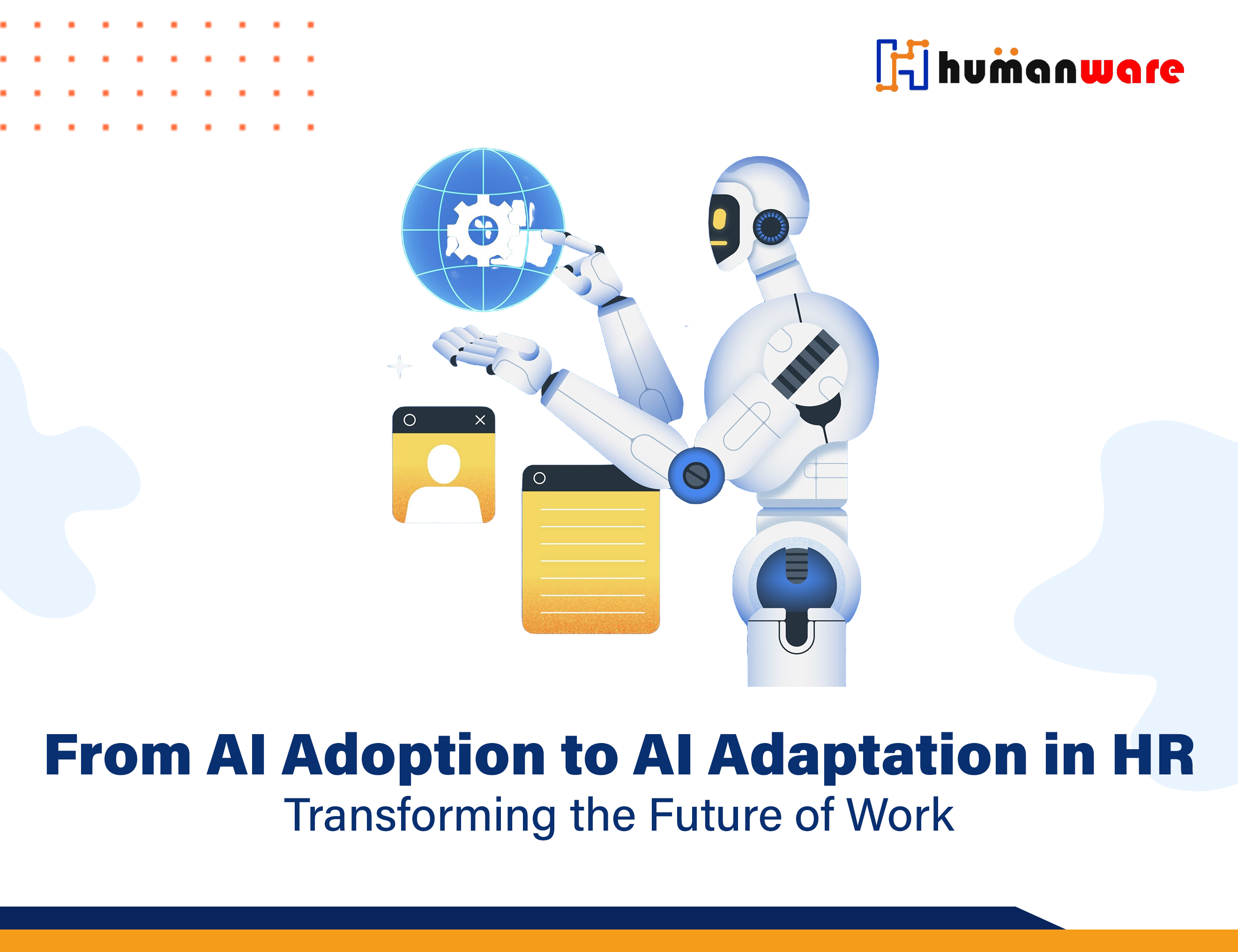
From AI Adoption to AI Adaptation in HR: Transforming the Future of Work
Artificial intelligence (AI) is no longer a future trend but a current business reality, transforming an organization’s work culture. In the HR Domain, the adoption of artificial intelligence has paved the way for unprecedented efficiency, automation and innovation. However, companies implementing AI must go beyond simple implementation and embrace AI in organizational culture.
This tectonic shift requires a strategic shift in functions, skills, and processes, prompting HR departments to think about how these transformations are changing the organization, the workplace, and people management. In addition to adopting new tools, HR must focus on instilling a mindset of innovation, flexibility and resilience in employees to take full advantage of technological advancements.
What Is AI Adoption in HR?
AI adoption refers to the implementation of artificial intelligence and machine learning technologies in HR processes. This includes implementing tools such as chatbots, predictive analytics and machine learning algorithms to improve tasks such as recruitment, employee engagement and performance management.
Why AI Adaptation Matters in HR?
AI adaptation goes beyond simply using off-the-shelf tools. It’s about crafting solutions that genuinely fit the unique needs of your organization. This involves tailoring AI to align with existing workflows, ensuring it integrates smoothly and enhances adoption across teams. For example, a retail company might customize AI to handle the surge of seasonal hiring, while a tech firm could focus on using AI-driven assessments to identify top candidates for specialized roles. Company culture is at the heart of employee satisfaction and productivity, and AI should support not disrupt that culture. When chatbots and communication tools use a tone and language that reflects a company’s values, employees feel more connected and valued. By weaving cultural nuances into AI solutions, businesses can enhance the employee experience, making interactions feel more personal and less like a machine.
Steps for Implementing Analytics for People Managers
- Assess Your Unique Needs: Understand your HR team's challenges and goals. For example, if employee turnover is high, focus on AI tools for employee retention and engagement.
- Personalize AI Tools: Collaborate with AI providers to customize solutions. For example, tailor your chatbot responses to reflect your company's tone and language.
- Focus on Ethical AI: Make sure AI decisions are transparent and free from bias. Regularly audit AI algorithms to maintain fairness in the hiring and promotion process.
- Train Your Workforce: Establish robust privacy and data security protocols to build trust among employees. It is essential to comply with data protection regulations.
- Encourage Human-AI Collaboration: Artificial intelligence does not replace human judgment. Promote a culture where AI supports, not replaces, HR professionals.
The next stage of the AI in HR journey will be seamless integration, where AI becomes an invisible but essential part of HR processes. Emerging technologies such as generative artificial intelligence and automation will further transform HR, pushing boundaries and creating new opportunities.
Conclusion
The journey from AI adoption to AI adoption represents a significant shift for HR departments. While adoption introduces powerful tools, adaptation ensures that these tools make a significant and lasting impact by aligning with the organization's goals and values. By leveraging AI adoption, HR teams can unleash the true potential of AI, transforming the future of work and creating a human-centric approach powered by intelligent technology.